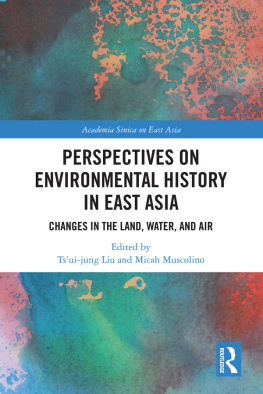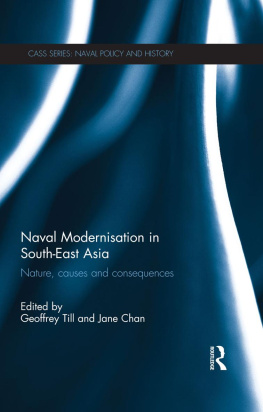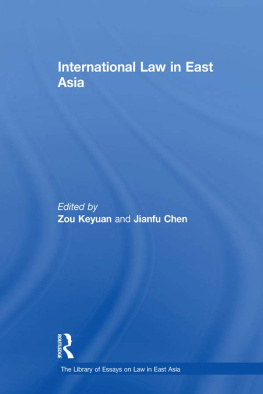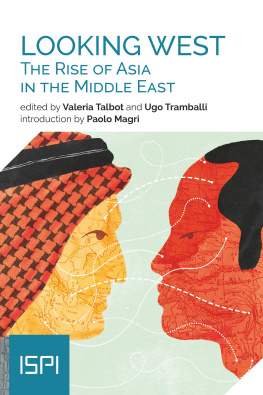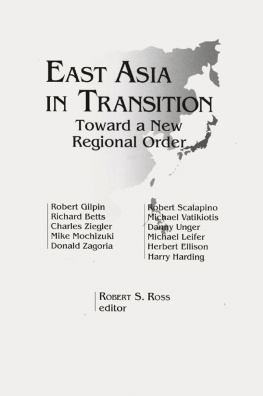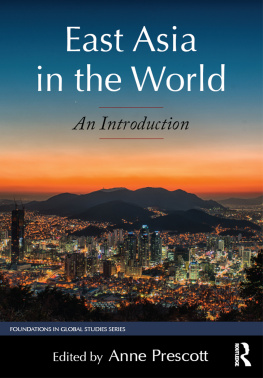
Energy Transition in East Asia
The Fukushima disaster of 2011 shook the globe, arousing warm debate and new research within the academic fields of countries in both the West and the East on issues related to nuclear security, public trust, government governance, risk governance and risk perception along with technological and social aspects. The Fukushima incident not only revealed the importance of risk governance in the East Asian region, but also became an important turning point in the restructuring of energy in several East Asian nations. However, the regulatory culture in East Asian countries is by nature different from that of their western counterparts; the history and culture of East Asia has formed East Asian countries unique regulatory characteristics
This book aims to establish a risk governance structure for the East Asian region, providing a completely new perspective for both practical implementation and the academic field. It focuses on the problems of risk governance in East Asia. Through a discussion of the risk related issues raised by contemporary globalization, this book outlines the unique form of East Asias risk governance architecture. It brings together the work of top academics from Japan, South Korea and Taiwan to provide a common picture of how these three countries governments are dealing with the energy transition brought on by the climate change crisis. The various aspects of East Asias unique regulatory culture and governance models are placed into context, while East Asias risk governance theoretical framework is outlined.
Kuei-Tien Chou is Director of Graduate Institute of National Development and also Director of Risk Society and Policy Research Center, National Taiwan University. He got his doctoral degree in sociology from Universitt Mnchen. His research interests are in the field of technological risk, climate change, risk governance, technological policy-making, public participation, science and democracy as well as East Asia modernity.
Routledge Contemporary Asia Series
For the full list of books: https://www.routledge.com/Routledge-Contemporary-Asia-Series/book-series/SE0794
Land Grabs in Asia
What role for the law?
Edited by Connie Carter and Andrew Harding
Asia Struggles with Democracy
Evidence from Indonesia, Korea and Thailand
Giovanna Maria Dora Dore
China-Malaysia Relations and Foreign Policy
Razak Abdullah
Politics of the Other in India and China
Western concepts in non-Western contexts
Edited by Lion Knig and Bidisha Chaudhuri
China-India Relations
Cooperation and conflict
Edited by Kanti Bajpai, Huang Jing and Kishore Mahbubani
New Regional Geopolitics in the Indo-Pacific
Drivers, dynamics and consequences
Edited by Priya Chacko
Energy Security in Asia and Eurasia
Edited by Mike M. Mochizuki and Deepa M. Ollapally
Populist Threats and Democracys Fate in Southeast Asia
Thailand, the Philippines, and Indonesia
William Case
Energy Transition in East Asia
A Social Science Perspective
Edited by Kuei-Tien Chou
Energy Transition in East Asia
A Social Science Perspective
Edited by
Kuei-Tien Chou
First published 2018
by Routledge
2 Park Square, Milton Park, Abingdon, Oxon, OX14 4RN
and by Routledge
711 Third Avenue, New York, NY 10017
Routledge is an imprint of the Taylor & Francis Group, an informa business
2018 selection and editorial matter, Kuei-Tien Chou; individual chapters, the contributors
The right of Kuei-Tien Chou to be identified as the authors of the editorial material, and of the authors for their individual chapters, has been asserted in accordance with sections 77 and 78 of the Copyright, Designs and Patents Act 1988.
All rights reserved. No part of this book may be reprinted or reproduced or utilised in any form or by any electronic, mechanical, or other means, now known or hereafter invented, including photocopying and recording, or in any information storage or retrieval system, without permission in writing from the publishers.
Trademark notice: Product or corporate names may be trademarks or registered trademarks, and are used only for identification and explanation without intent to infringe.
British Library Cataloguing in Publication Data
A catalogue record for this book is available from the British Library
Library of Congress Cataloging in Publication Data
A catalog record for this book has been requested
ISBN: 978-1-138-06574-1 (hbk)
ISBN: 978-1-315-15948-5 (ebk)
Koichi Hasegawa is Profesor of Department of Sociology, Graduate School of Arts and Letters, Tohoku University, Japan.
Dowan Ku is Director of Environment and Society Research Institute, Seoul, South Korea.
Kuei-Tien Chou is Director of Graduate Institute of National Development and also Director of Risk Society and Policy Research Center, National Taiwan University.
Sun-Jin Yun is Professor of Graduate School of Environmental Studies, Seoul National University.
Shu-Fen Kao is Assistant Professor, Department of Sociology, Fo Guang University.
Ying-Feng Chen is Assistant Professor, Department of Public Administration, Chinese Culture University.
Jin Hee Park is Professor, Dharma College, Dongguk University, Seoul, South Korea.
Miwao Matsumoto is Professor, Department of Sociology, Graduate School of Humanities and Sociology, The University of Tokyo, Japan.
Kohta Juraku is Associate Professor, Department of Humanities, Social and Health Sciences, School of Engineering, Tokyo Denki University.
Yuji Tateishi is Associate Professor, School of Sociology, Kwansei Gakuin University, Japan.
Mei-Fang Fan is Professor at the Institute of Science, Technology and Society, National Yang-Ming University; researcher at the Risk Society and Policy Research Center of National Taiwan University.
Chien-Ming Hsu is Assistant Research Fellow of Risk Society and Policy Research Center, College of Social Science, National Taiwan University.
We are suffering from global energy problems; climate change, nuclear power, peak oil, air pollution and so on are threatening the sustainability of global ecosystems and economic systems not to mention the survival of the human race itself. How can we survive such global energy risks? If we are ever to reconstruct an ecologically sustainable and socially just society worldwide, we must tackle the issue of energy transition. Energy transition can be defined as the structural change of energy production and consumption systems from an industrial paradigm with an energy system dependent on nature-exploitive energy sources to an ecological paradigm of an energy system making use of diversified, diffusive, and participatory energy sources. If the symbols of the industrial paradigm have been fossil fuel and nuclear energy, those of the ecological paradigm are solar and wind power.


